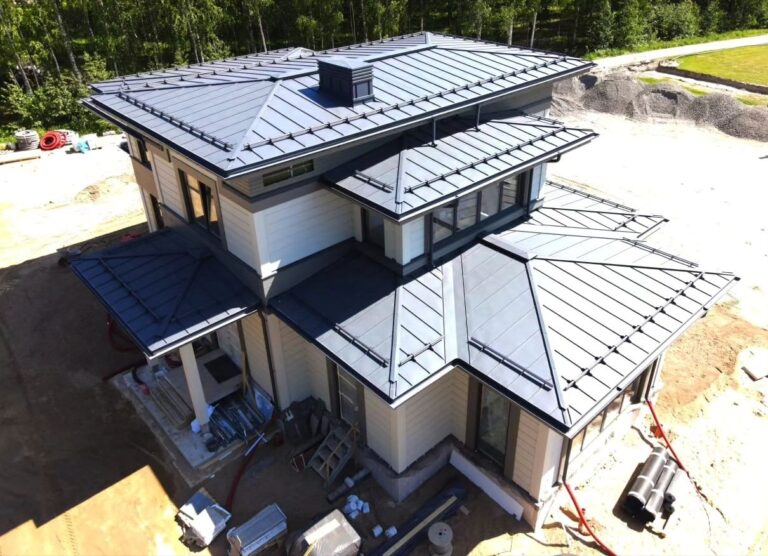7 Tips to Tackle Common Household Issues
Owning a home brings a sense of pride and accomplishment, but it also comes with the responsibility of addressing common household issues that may arise. From leaky faucets to squeaky doors, these issues can be a source of frustration if left unattended. However, with a proactive approach and some essential tips, homeowners can effectively tackle these problems and maintain a well-functioning home. In this blog, we’ll explore seven practical tips to empower homeowners in addressing and preventing common household issues.
1. Prevention is Key
The first tip in maintaining a well-functioning home is to adopt a proactive approach to prevention. Regular and proactive inspections allow homeowners to identify potential issues before they escalate, saving both time and money. By conducting routine checks on key areas such as plumbing, roofing, and the foundation, homeowners can catch minor concerns early on and implement preventive measures to avoid more significant problems. This approach not only contributes to the longevity of a home but also ensures a more comfortable and stress-free living environment. Prevention involves a commitment to ongoing maintenance, emphasizing the importance of addressing small issues before they have a chance to evolve into larger, more costly problems. In essence, a proactive mindset towards home maintenance is the first line of defense in preserving the value and well-being of one’s living space.

2. DIY Repairs for Minor Issues
Empowering homeowners with the skills and confidence to tackle minor repairs through do-it-yourself (DIY) efforts is a valuable aspect of home maintenance. DIY repairs not only save money but also provide a sense of accomplishment. Armed with essential tools and guided by online tutorials and guides, homeowners can address common issues such as leaky faucets, squeaky doors, and loose fixtures on their own. This hands-on approach fosters a deeper connection to the home and encourages a proactive mindset towards maintenance. Additionally, DIY repairs offer an immediate solution to minor problems, preventing them from escalating into more significant issues that might require professional intervention. Building a toolkit and acquiring basic repair skills empowers homeowners to take charge of their living spaces, contributing to a more sustainable and cost-effective approach to home maintenance.

3. Knowing When to Call a Professional
While DIY repairs can address many common household issues, it’s crucial to recognize when a situation requires professional expertise. The third tip emphasizes the importance of knowing when to call a professional. Issues such as electrical problems, major plumbing concerns, or structural damage should be left to skilled contractors or specialists. Regarding plumbing concerns, a clogged drain deep in the pipe can be a particularly tricky issue requiring specialized expertise. Homeowners might attempt basic unclogging methods, but when the blockage persists, it’s time to call in a professional plumber. With the necessary tools and experience, a plumber can efficiently diagnose and address issues deep within the pipe, ensuring a thorough resolution to the problem. Recognizing the limitations of DIY efforts and seeking professional assistance when needed is key to preventing further damage and maintaining the integrity of the home’s plumbing system. Also, ignoring the need for professional help in such cases can lead to more significant problems and potentially compromise the safety of the home.
4. Creating an Emergency Preparedness Kit
Creating an emergency preparedness kit is an essential step for homeowners to ensure they are equipped to handle unexpected situations effectively. The kit should include fundamental tools and supplies such as flashlights, wrenches, screwdrivers, and other essentials that can be vital during unexpected household emergencies. This proactive measure not only facilitates quick responses to sudden issues but also provides peace of mind in the face of unforeseen circumstances, including power outages or natural disasters. A well-prepared homeowner with an emergency kit is better positioned to address urgent situations promptly, minimizing potential damage and ensuring the safety and well-being of the household.
5. Regular Cleaning and Maintenance
Regular cleaning and maintenance are foundational practices for preserving a home’s overall health and functionality. Beyond aesthetics, a clean living space contributes to the prevention of various household issues. Establishing a routine for cleaning and maintenance tasks, including HVAC system checks, gutter cleaning, and surface upkeep, can identify and address problems early on. These practices are crucial for creating a safe and comfortable living environment, from preventing mold growth to minimizing the risk of pest infestations. Regular cleaning enhances the visual appeal of a home and extends the lifespan of appliances and systems, making it a fundamental aspect of responsible homeownership.
6. Budgeting for Home Repairs
Budgeting for home repairs is a strategic and proactive approach to managing the financial aspects of homeownership. By setting aside funds specifically designated for maintenance and unexpected repairs, homeowners can navigate unforeseen expenses without compromising their overall budget. This financial planning ensures that the home remains well-maintained, addressing issues promptly and preventing minor problems from evolving into costly repairs. Establishing a dedicated fund for home repairs provides peace of mind, allowing homeowners to respond promptly to emerging issues while avoiding financial strain. This prudent budgeting approach aligns with responsible homeownership, fostering a sustainable and resilient living space.

7. Seeking Advice from Home Improvement Resources
Seeking advice from home improvement resources is a smart and proactive strategy for homeowners looking to enhance their living spaces. With a wealth of information available online, including DIY tutorials, forums, and expert insights, homeowners can tap into a vast pool of knowledge. Local hardware stores and professionals also serve as valuable resources, providing personalized advice tailored to specific needs and challenges. Engaging with these resources empowers homeowners with the know-how to address common issues and fosters a sense of community and shared experiences. By staying informed and seeking guidance, homeowners can make well-informed decisions, ensuring the long-term health and functionality of their homes.

In conclusion, proactive homeownership involves a combination of preventative measures, DIY skills, and strategic decision-making to address and prevent common household issues. By adopting the seven tips outlined in this blog, homeowners can take control of their living spaces, ensuring they remain safe, functional, and enjoyable. From preventing problems through regular inspections to being prepared for emergencies, these tips serve as a comprehensive guide for homeowners looking to maintain a well-kept and resilient home. Ultimately, the proactive approach to household issues not only enhances the homeowner’s quality of life but also preserves the long-term value and integrity of the property.






